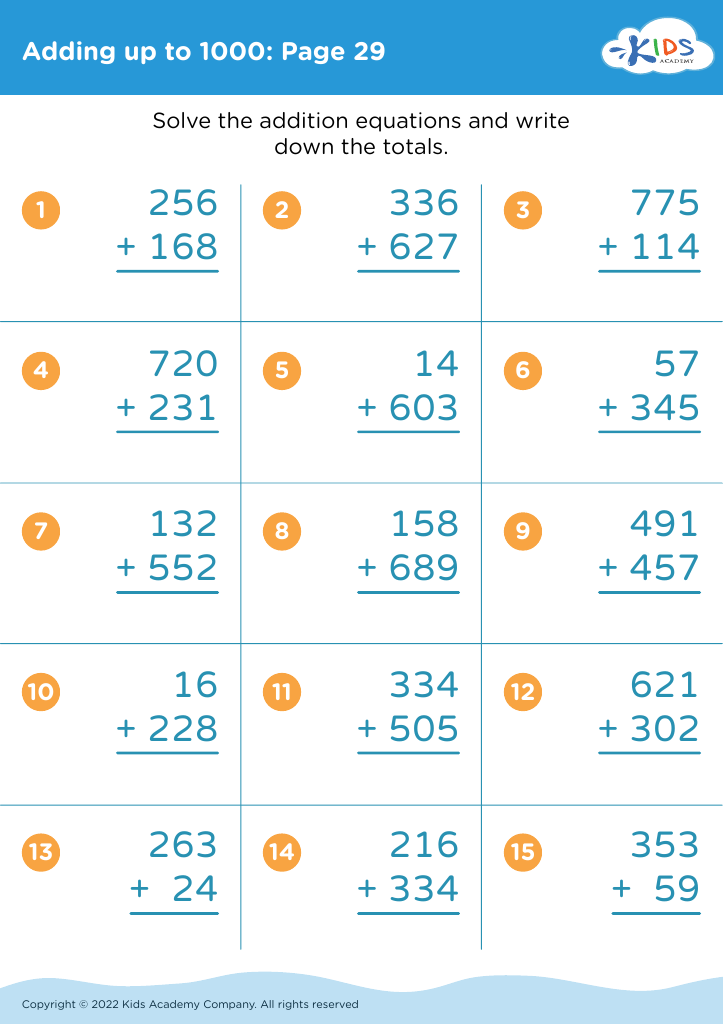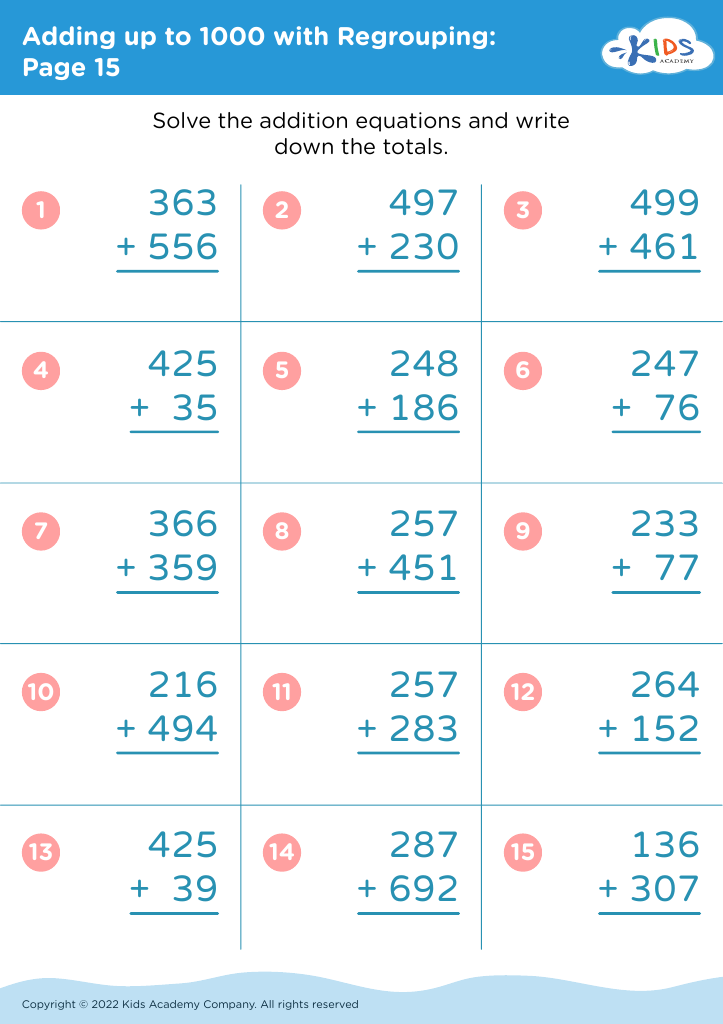Time conversion skills Addition & Subtraction Worksheets for Ages 5-8
3 filtered results
-
From - To
Enhance your child's mathematical abilities with our Time Conversion Skills Addition & Subtraction Worksheets designed for ages 5-8. These engaging and educational worksheets help young learners understand the relationship between hours and minutes while practicing their addition and subtraction skills. Through fun, age-appropriate activities, your child will improve their time-telling proficiency and fundamental math skills. Perfect for both classroom use and at-home practice, these printable worksheets provide a solid foundation in time management and arithmetic. Keep your child ahead of the curve with our expertly crafted resources from Kids Academy.
Understanding time conversion and basic arithmetic operations such as addition and subtraction is crucial for young children, laying essential groundwork for numerous life skills and future academic endeavors. For children aged 5-8, mastering these skills fosters several important developmental benefits.
Firstly, time conversion helps children comprehend the concept of time, teaching them how to read clocks and understand hourly sequences. This comprehension enables them to manage daily routines better, instilling a sense of responsibility and punctuality. As soft skills go, time management learned early on can lead to more effective task planning and prioritization, both academically and personally.
Secondly, basic addition and subtraction are foundational to all higher-level mathematics. Proficiency in these skills at an early age builds confidence and prepares children for more complex mathematical concepts they will encounter in subsequent grades.
Moreover, these mathematical skills overlap with logical thinking, problem-solving, and cognitive development. Recognizing patterns, sequences, and numerical relationships enhances children's critical thinking, which is indispensable in everyday decision-making and academic success.
Parents and teachers play a vital role in nurturing these skills. Incorporating fun, engaging activities that involve time conversion and arithmetic can make learning enjoyable while providing children with the tools needed to navigate the world effectively. Investing time in developing these capabilities early on pays dividends in both immediate academic performance and longer-term personal growth.





















